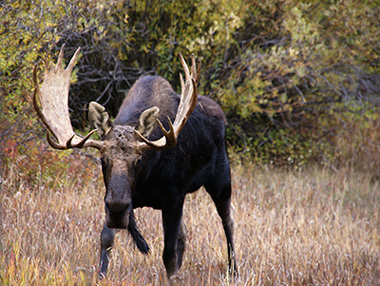 One of the things I love about Athabasca University is the flexible schedule. For the first week of September I packed my bags and headed on a five night, six day, kayaking trip around The Bowron Lakes Circuit. This trip is incredible; going out into the wilderness for any length of time tests your resolve as a person in a primal way.
One of the things I love about Athabasca University is the flexible schedule. For the first week of September I packed my bags and headed on a five night, six day, kayaking trip around The Bowron Lakes Circuit. This trip is incredible; going out into the wilderness for any length of time tests your resolve as a person in a primal way.
This was my second time around the circuit. The first day was beautiful, the sun was shining, the rain fell, and we were hailed on?but only for a few moments. The first evening, however, tends to overshadow the entire day. Minutes after arriving to camp the rain started, the thunder crashed overhead and we questioned ourselves as we stood on the edge of the lake, under a tree, exactly where you do not want to be in a lightning storm. The rainstorm tested us. It chilled us to the bone, and we soon discovered just how fast we can set up a tent. We worked as a team to set up both tents as quickly as possible, attempting to keep them dry; as a team we unpacked each kayak and tossed the necessary gear into the tent. Amazingly, the gear stayed relatively dry.
The following day the lake was covered in dense fog meaning we could not leave camp until about noon. Which worked out well as I roasted my socks over the fire we got started, drying out both them and my shoes, as well as another ladies shoes. We found great comfort that night in the form of a cooking shelter. It was a solid roof with a fireplace, perfect, we rejoiced in the simple comforts and dried the remainder of our gear by this fireplace. The first few days tested our will and our determination. We stayed as dry as we could and while we could have turned back we prevailed. Our determination to carry forward was rewarded as the largest lake, Isaac Lake, was as smooth as glass. This lake is notorious for getting rough which we had learned last year when we were literally blown off the lake.
These trips do not only test one’s personal determination through the unpredictable weather, but through the obstacles it throws at you. On our third day we were heading down the Caribou River. We have experience kayaking lakes, and this river, last year, but rivers have a tendency to change rather quickly and our experience on rivers is limited. Still, we were not going to let nerves deter us, so we pointed down the river, dodging rocks, trees, floating logs, and logjams as we went. And we all arrived safe and dry at the other end. This wasn’t assured, however, as there was another group behind us who ended up dumping their kayaks three times in a couple sections of river. They arrived in camp all smiles ?though frozen. The attitude of people out here is incredible. When you are out in the middle of nowhere priorities change becoming simplistic and beautiful.
Our last test would come on our final night. On our final night we arrived into camp late, eating our dinner by the light of our headlamps. After dinner we packed our food and headed to the bear cache to store it for the night. We had heard some splashing but passed it off as fish, or ducks, nothing of concern. As we approached our tents my headlamp cast light across some bushes, behind which was the lake, but what I did not expect was to see two eyes looking back at me. Two eyes accompanied by a very large rack. I stopped, stuttering to my companions that there was a very large moose “Right there!” This moose was not alone and had an exceptionally large friend. We were looking at two large, healthy, bull moose. And rutting season about to start. The moose stood about ten feet away; we hollered at them to move on, as this tactic would send most moose scurrying away as fast as their hooves would carry them. But this drew them closer as they ran from one side of the spire of sand to the other. We stood together, holding our canisters of bear spray, listening for movement, unable to see beyond the bushes?beyond our light?while the moose stood grunting at us from somewhere in the darkness. It was a standoff, and we could not help but feel we were at a disadvantage as we chose which tree would be easiest to climb.
We spent the night dodging moose as they ran from one side of our bit of land to the other. Deciding they were not going to move on, we built a small fire to keep them at bay and then had to move our tents closer to it before we crawled in for what was left of the night; the moose had won this stalemate. We know when we enter this primal environment that we may be faced with numerous obstacles. We know before venturing into the wilderness that, out there, the wilderness rules, and we are merely visitors to its land. This is what makes the adventure, removing technology, removing security, and allowing ourselves to become enveloped by the natural world: a world where we do not stand on top.
Deanna Roney is an AU student who loves adventure in life and literature
